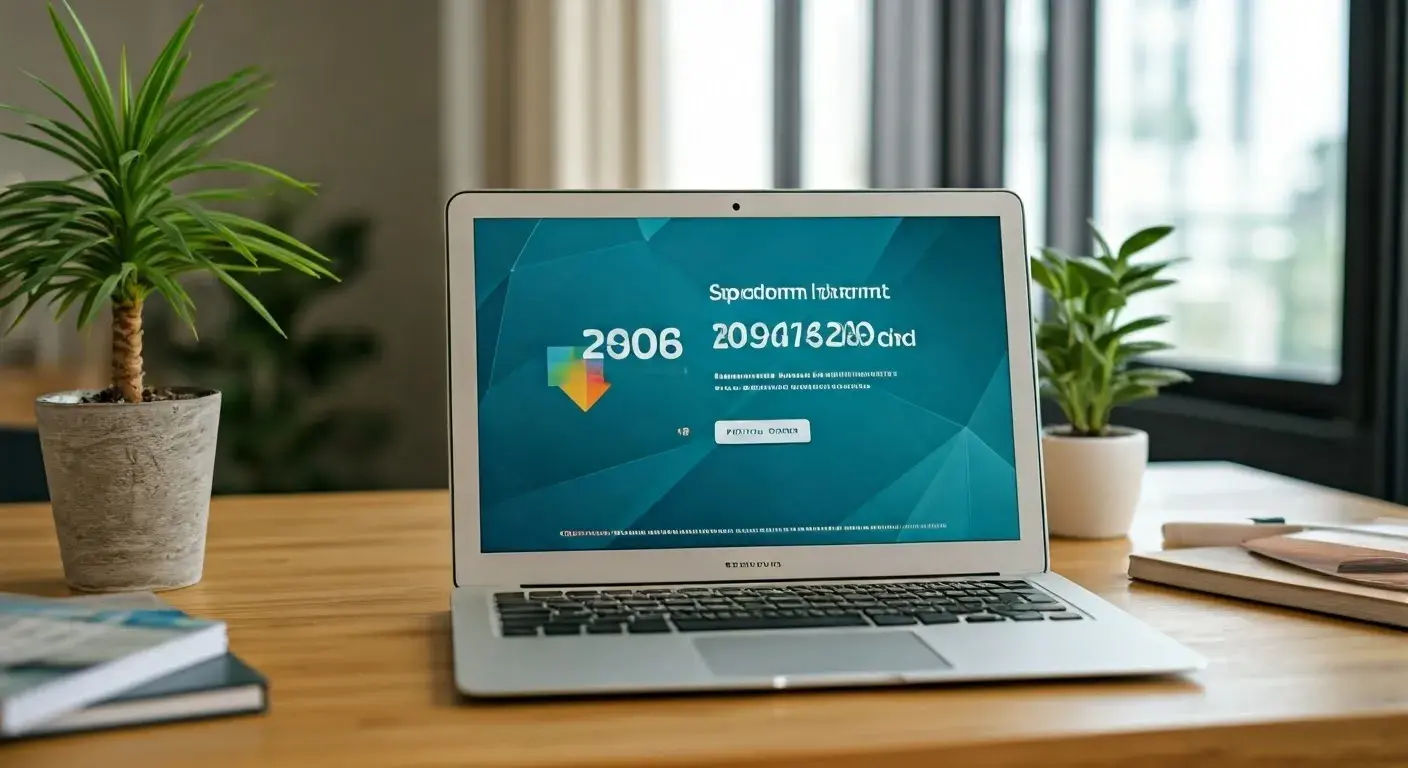How Much is Spectrum Internet a Month?

Unlocking the mystery of Spectrum internet costs is crucial for budget-conscious consumers. This comprehensive guide dives deep into the pricing structures, available plans, and hidden fees associated with Spectrum internet services in 2025, helping you find the perfect plan without breaking the bank.
Understanding Spectrum Internet Pricing
Spectrum, a leading internet service provider (ISP) in the United States, offers a variety of internet plans designed to cater to different user needs and budgets. When asking "How much is Spectrum internet a month?", it's essential to understand that the price isn't static. It fluctuates based on several key factors, including the speed tier you select, your geographic location, any promotional offers you qualify for, and the equipment you choose to use. Unlike some competitors, Spectrum generally does not require long-term contracts for its internet-only services, offering a degree of flexibility. However, this flexibility can sometimes mean that advertised introductory prices are only valid for a limited period. Understanding these nuances is the first step to accurately budgeting for your Spectrum internet service. In 2025, Spectrum continues to emphasize its commitment to providing high-speed internet access across its service areas, often bundled with TV and phone services. The core pricing model revolves around download and upload speeds, with higher speeds invariably commanding higher monthly costs. It's also worth noting that Spectrum's pricing can vary slightly between states and even within different regions of the same state due to local market conditions and regulatory environments.
Spectrum Internet Plans and Speeds (2025)
Spectrum offers a tiered approach to its internet plans, with each tier providing a different level of speed and performance. These plans are generally categorized by their download speeds, as upload speeds are often a fraction of the download speeds. As of 2025, here are the typical plans you might encounter, though exact names and speeds can vary by region:
Spectrum Internet® (Standard)
This is often Spectrum's entry-level offering. It's designed for basic internet usage such as browsing, email, social media, and streaming standard-definition content on one or two devices.
- Typical Download Speed: Around 300 Mbps
- Typical Upload Speed: Around 10 Mbps
- Estimated Monthly Cost (Introductory): $49.99 - $69.99 (often with a 12-month promotional rate)
- Estimated Monthly Cost (After Promotion): $79.99 - $99.99
- Best For: Individuals or small households with light internet usage.
Spectrum Internet® Ultra
This plan significantly boosts download speeds, making it suitable for households with multiple users, more demanding streaming needs, and casual online gaming.
- Typical Download Speed: Around 500 Mbps
- Typical Upload Speed: Around 20 Mbps
- Estimated Monthly Cost (Introductory): $69.99 - $89.99 (often with a 12-month promotional rate)
- Estimated Monthly Cost (After Promotion): $99.99 - $119.99
- Best For: Moderate to heavy internet users, families with multiple devices, and those who stream HD/4K content regularly.
Spectrum Internet® Gig
This is Spectrum's highest-tier residential internet plan, offering gigabit speeds. It's ideal for power users, large households with many connected devices, professional gamers, and those who frequently download large files or utilize cloud-based services extensively.
- Typical Download Speed: Up to 1 Gbps (1000 Mbps)
- Typical Upload Speed: Around 35-50 Mbps
- Estimated Monthly Cost (Introductory): $89.99 - $109.99 (often with a 12-month promotional rate)
- Estimated Monthly Cost (After Promotion): $119.99 - $139.99
- Best For: Power users, large families, gamers, content creators, and households with a high number of connected smart devices.
It's crucial to note that these are *estimated* costs for 2025. Actual pricing can vary significantly based on your specific location. Always check Spectrum's official website or contact them directly for the most accurate pricing in your area. The advertised prices often reflect a promotional period, typically 12 months, after which the price will increase to the standard rate. This is a common practice among ISPs to attract new customers.
Understanding Mbps: What It Means for You
Mbps stands for Megabits per second. This unit measures the speed of your internet connection. A higher Mbps number means a faster connection.
- Download Speed: How quickly you can receive data from the internet. This impacts streaming, browsing, and downloading files.
- Upload Speed: How quickly you can send data to the internet. This is important for video calls, uploading files, and online gaming.
For instance, 300 Mbps is generally sufficient for most households, allowing for smooth streaming and browsing for several users. However, if you have a large family with many devices constantly online, or if you frequently engage in activities like large file uploads or intensive online gaming, higher speeds like 500 Mbps or even 1 Gbps will provide a much better experience.
Factors Influencing Spectrum Internet Cost
The question "How much is Spectrum internet a month?" is best answered by understanding the variables that affect the final price. Beyond the plan speed itself, several other factors come into play, making it essential to get a personalized quote.
1. Geographic Location
Spectrum operates in specific regions across the United States. Pricing can differ significantly from one state to another, and sometimes even between different cities or neighborhoods within the same state. This variation is often due to local competition, regulatory requirements, and the cost of infrastructure in that area. For example, internet costs in a densely populated urban area might differ from those in a more rural setting, even if the same plan is offered.
2. Promotional Offers and Contract Terms
Spectrum, like most ISPs, frequently offers introductory promotions to attract new customers. These promotions typically involve a discounted monthly rate for a set period, usually 12 months. After this promotional period ends, the price reverts to the standard, higher rate. It's crucial to be aware of these promotional periods and the subsequent price increases. Some plans might also be tied to bundles with TV or phone services, which can alter the overall cost. While Spectrum generally doesn't require long-term contracts for internet-only plans, understanding the duration of any promotional pricing is key to accurate budgeting.
3. Bundling Services
Spectrum offers a suite of services, including cable TV, home phone, and mobile. Bundling these services together can sometimes lead to cost savings compared to subscribing to each service individually. For instance, a triple-play bundle (Internet, TV, Phone) might offer a lower combined monthly price than paying for each service separately. However, it's important to evaluate if you truly need all the bundled services, as you might end up paying for features you don't use. Always compare the bundled price against the cost of individual services to ensure it's a genuine saving.
4. Equipment Rentals
While you can often use your own compatible modem and router, Spectrum typically charges a monthly fee for renting their equipment. This includes the modem, which is essential for connecting to their network, and sometimes a router if you opt for a Wi-Fi-enabled device. The cost of equipment rental can add a significant amount to your monthly bill, so factor this in when calculating the total cost. In 2025, these rental fees can range from $10 to $25 per month, depending on the equipment provided.
5. Data Caps (or Lack Thereof)
One of the advantages Spectrum often highlights is its lack of data caps on most of its internet plans. This means you can use as much internet data as you need without worrying about incurring overage charges or having your speeds throttled. While this doesn't directly impact the monthly price, it removes a potential cost factor that some other ISPs impose. This policy makes Spectrum an attractive option for heavy internet users.
6. Taxes and Fees
Beyond the advertised price of the plan and equipment rental, your monthly bill will also include various taxes and government-mandated fees. These can vary by location and are often not included in the advertised promotional prices. These fees can add anywhere from a few dollars to over ten dollars to your monthly bill, so it's important to factor them into your overall budget.
Spectrum Internet Deals and Promotions
Spectrum actively seeks to attract new customers and retain existing ones through various deals and promotions. Understanding these can significantly impact how much you pay for Spectrum internet a month, especially during the initial period of your service.
Introductory Pricing
As mentioned earlier, the most common type of promotion is discounted introductory pricing. These rates are typically available for the first 12 months of service. For example, a plan that normally costs $99.99 per month might be offered for $49.99 per month for the first year. It is imperative to know the end date of this promotional period and the standard rate that will apply afterward.
Bundled Service Discounts
Spectrum often incentivizes customers to bundle their internet service with TV and/or phone packages. These "triple play" or "double play" bundles can offer substantial savings compared to subscribing to each service individually. For example, you might get a discounted rate on internet when you also sign up for a specific TV tier. The exact discount depends on the specific bundle and the current promotions available.
New Customer Offers
Beyond standard introductory pricing, Spectrum may occasionally offer special deals exclusively for new customers. These could include waived installation fees, a free modem rental for a limited time, or even gift cards upon signing up. These offers are often time-sensitive and advertised on their website or through marketing campaigns.
Loyalty Programs and Upgrades
While less common for internet-only plans, existing customers might be eligible for upgrade promotions or special pricing if they are looking to switch to a higher-speed tier or add services. It's always worth contacting Spectrum customer service to inquire about any available loyalty discounts or upgrade offers, especially if your contract or promotional period is nearing its end.
How to Find and Maximize Promotions
- Visit the Official Spectrum Website: This is the most reliable source for current deals and promotions. Look for sections like "Deals," "Offers," or "Promotions."
- Contact Spectrum Directly: Sales representatives can inform you about available promotions that might not be prominently advertised online, especially those specific to your address.
- Read the Fine Print: Always carefully review the terms and conditions of any promotional offer. Pay close attention to the duration of the discount, the standard rate that applies afterward, and any other requirements.
- Be Prepared to Negotiate: If you are an existing customer whose promotional period is ending, or if you are considering switching from another provider, don't hesitate to contact Spectrum and ask about potential discounts or better plans.
By actively seeking out and understanding these promotions, you can significantly reduce the monthly cost of your Spectrum internet service, especially during the initial phase of your subscription.
Spectrum Internet Equipment Costs
The equipment required to connect to Spectrum's network is a crucial component of your monthly internet bill. Spectrum offers a couple of options regarding equipment, each with its own cost implications.
Spectrum-Provided Equipment (Modem and Router Rental)
Spectrum typically provides a modem, and often a Wi-Fi router, for a monthly rental fee. This is the most common setup for new customers.
- Modem Rental Fee: This fee covers the use of Spectrum's modem, which is essential for establishing an internet connection. As of 2025, this fee generally ranges from $10 to $15 per month.
- Wi-Fi Router Rental Fee: If you need Wi-Fi capabilities and don't have your own router, Spectrum can provide one. This rental fee is typically an additional $5 to $10 per month, on top of the modem rental. Some packages might include a modem/router combo unit.
- Total Equipment Rental Cost: Therefore, renting both a modem and a router from Spectrum can add approximately $15 to $25 to your monthly bill.
The advantage of renting equipment is that Spectrum is responsible for its maintenance and replacement if it malfunctions. If there's an issue with the rented equipment, you can typically swap it out at a Spectrum store or have a technician visit your home.
Using Your Own Equipment (BYOD - Bring Your Own Device)
For customers looking to save on monthly rental fees, Spectrum allows you to use your own compatible modem and router. This is often referred to as "Bring Your Own Device" (BYOD).
- Initial Purchase Cost: The primary cost here is the upfront purchase of a compatible modem and router. A good quality modem can cost between $70 and $150, while a reliable router can range from $50 to $200 or more, depending on features and performance.
- No Monthly Rental Fees: The significant benefit is that you eliminate the recurring monthly equipment rental charges from Spectrum. Over time, this can lead to substantial savings. For example, if you save $20 per month on rental fees, you'll recoup the cost of a $100 modem in about five months.
- Compatibility Requirements: It's crucial to ensure that any modem you purchase is compatible with Spectrum's network. Spectrum maintains a list of approved modems on its website. Using an incompatible modem will prevent you from getting online.
- Responsibility for Maintenance: When you own your equipment, you are responsible for its maintenance, troubleshooting, and replacement if it fails.
Choosing the Right Option
The decision to rent or buy your own equipment depends on your budget and preferences. If you prefer the convenience of having the ISP handle equipment issues and want to avoid the upfront cost, renting is a viable option. However, if you're looking to minimize your monthly expenses and are comfortable managing your own network hardware, purchasing your own compatible modem and router is generally the more cost-effective choice in the long run. Always check Spectrum's current equipment rental fees and their list of compatible modems to make an informed decision.
Hidden Fees and Other Charges
When determining "How much is Spectrum internet a month?", it's vital to look beyond the advertised plan price and equipment rental. Several other fees and charges can contribute to your total monthly bill, often referred to as "hidden fees" because they aren't always prominently displayed.
Installation Fees
Spectrum typically charges an installation fee for new service. This fee covers the cost of a technician coming to your home to set up your service and ensure everything is working correctly.
- Standard Installation: This usually involves connecting your home to Spectrum's network and setting up the modem. The cost can range from $49.99 to $99.99.
- Self-Installation: In some cases, if your home is already wired for Spectrum service, you might be offered a self-installation kit, which can significantly reduce or even eliminate the installation fee.
- Promotional Waivers: Often, new customer promotions include waiving the installation fee, so be sure to ask about this.
Service Call Fees
If a Spectrum technician needs to visit your home to resolve an issue that is determined to be related to your equipment (if rented) or inside wiring, you might be charged a service call fee. However, if the issue is with Spectrum's network or their rented equipment, this fee is usually waived.
Late Payment Fees
If you fail to make your payment by the due date, Spectrum will charge a late fee. The amount of this fee is typically a percentage of your outstanding balance or a flat rate, as stipulated in your service agreement.
Early Termination Fees (Less Common for Internet-Only)
Spectrum generally does not require long-term contracts for its internet-only plans. This means there are typically no early termination fees if you decide to cancel your service. However, if you are on a bundled package that includes TV or phone with a contract, or if you received a significant discount tied to a specific commitment period, early termination fees might apply. Always clarify the contract terms.
Taxes and Surcharges
This is perhaps the most common "hidden" charge. Your monthly bill will include federal, state, and local taxes, as well as various regulatory fees and surcharges. These are levied by government entities and are passed on to the consumer by Spectrum. The exact amount varies significantly by location. These fees can add anywhere from 5% to 20% or more to your base monthly service cost.
Equipment Upgrade Fees
If you decide to upgrade your rented modem or router to a newer or more advanced model, there might be an associated fee for the equipment swap.
How to Avoid or Minimize These Fees
- Read Your Contract Carefully: Understand all terms and conditions before signing up.
- Ask Questions: Don't hesitate to ask customer service about all potential fees.
- Pay On Time: Avoid late fees by setting up automatic payments or reminders.
- Consider Self-Installation: If available, opt for self-installation to save on setup costs.
- Use Your Own Equipment: This eliminates rental fees and potential upgrade fees.
- Verify Issue Responsibility: Understand when a service call fee might apply versus when it's Spectrum's responsibility.
By being aware of these potential charges, you can get a more accurate picture of your total monthly Spectrum internet expense and take steps to minimize them.
How to Save Money on Spectrum Internet
Saving money on your Spectrum internet bill is achievable with a strategic approach. By understanding your needs and leveraging available options, you can reduce your monthly expenditure without sacrificing essential service.
1. Choose the Right Speed Tier
The most significant factor influencing your monthly cost is the internet speed you select. Before choosing a plan, assess your household's internet usage habits.
- Light Users: If you primarily use the internet for email, social media, and occasional browsing, the basic Spectrum Internet® plan (around 300 Mbps) is likely sufficient and the most cost-effective.
- Moderate Users: For households with multiple users, regular HD streaming, and some online gaming, Spectrum Internet® Ultra (around 500 Mbps) might be the sweet spot.
- Heavy Users: Only opt for Spectrum Internet® Gig (up to 1000 Mbps) if you have a large household with many devices, work from home requiring large file transfers, or are an avid gamer and streamer.
Avoid overpaying for speeds you don't need. A careful assessment can save you $20-$50 or more per month.
2. Take Advantage of Promotions and Discounts
Spectrum frequently offers introductory pricing for new customers, often for the first 12 months.
- New Customer Deals: Always check the Spectrum website for current new customer promotions. These can significantly reduce your initial monthly bill.
- Ask About Discounts: Even if you're an existing customer, periodically inquire about any available discounts or loyalty programs. Sometimes, threatening to switch providers can prompt retention offers.
- Government Programs: Check if you qualify for programs like the Affordable Connectivity Program (ACP), which can provide a discount on internet service for eligible households. Spectrum participates in such programs.
3. Bundle Services Wisely
Spectrum offers bundles that combine internet, TV, and phone services.
- Evaluate Necessity: Bundling can offer savings, but only if you genuinely need all the bundled services. If you primarily need internet, a bundle might be more expensive than an internet-only plan.
- Compare Total Cost: Calculate the total cost of the bundle versus purchasing services separately from Spectrum or other providers to ensure it's a good deal.
4. Use Your Own Equipment
As detailed in the equipment section, renting a modem and router from Spectrum adds $15-$25 (or more) to your monthly bill.
- Purchase a Compatible Modem and Router: Investing in your own equipment upfront can save you a considerable amount of money over the lifespan of your service. Ensure the modem is on Spectrum's approved list.
- Calculate ROI: A $100 modem can pay for itself within 5-10 months compared to rental fees.
5. Negotiate Your Bill
Don't be afraid to negotiate with Spectrum, especially when your promotional period is ending or if you're considering switching providers.
- Call Retention/Customer Service: Explain your situation and ask if there are any available discounts or better plans you can switch to.
- Be Polite but Firm: Highlight your loyalty (if applicable) or your intention to explore other options.
6. Monitor Your Usage
While Spectrum generally doesn't have data caps, understanding your usage patterns can help you justify the speed tier you're paying for. If you find you're consistently using much less data than your plan allows, you might be able to downgrade to a cheaper tier.
7. Avoid Unnecessary Fees
Be mindful of installation fees, late fees, and service call fees. Opt for self-installation if possible, pay your bills on time, and ensure any service issues are due to Spectrum's network before agreeing to a service call fee.
By implementing these strategies, you can effectively manage and reduce your monthly Spectrum internet costs, ensuring you get the best value for your money.
Comparing Spectrum to Competitors
When evaluating "How much is Spectrum internet a month?", it's essential to place their pricing and offerings within the broader market context. Spectrum operates in a competitive landscape, facing off against national providers like Xfinity (Comcast), Cox, and AT&T, as well as numerous smaller regional ISPs and newer fiber optic providers. Understanding these comparisons can help you determine if Spectrum offers the best value for your specific needs.
Spectrum vs. Xfinity (Comcast)
Xfinity is often Spectrum's most direct competitor, as they operate in many of the same areas and offer similar cable internet services.
- Pricing: Both providers typically offer comparable introductory pricing for similar speed tiers, with prices increasing after a promotional period. Xfinity's standard rates can sometimes be slightly higher or lower than Spectrum's, depending on the region and specific plan.
- Speeds: Both offer a range of speeds, from basic broadband to gigabit plans. Xfinity often has a slight edge in offering higher top-end speeds in some markets.
- Contracts: Both generally offer contract-free internet-only plans, but bundles might involve contracts.
- Equipment Fees: Both charge monthly fees for modem and router rentals.
- Data Caps: Xfinity has historically imposed data caps (e.g., 1.2 TB per month), with overage charges or speed throttling if exceeded, though they have introduced unlimited data options for an additional fee. Spectrum's lack of data caps is a significant differentiator.
Spectrum vs. AT&T
AT&T offers a mix of internet technologies, including DSL, fiber (AT&T Fiber), and fixed wireless.
- Pricing: AT&T Fiber plans are often competitively priced, especially for gigabit speeds, and sometimes include unlimited data without extra fees. AT&T's DSL plans are typically slower and cheaper but may not be competitive with Spectrum's cable speeds.
- Speeds: AT&T Fiber offers symmetrical speeds (equal download and upload), which is a significant advantage for power users, gamers, and content creators. Spectrum's upload speeds are generally much lower.
- Availability: AT&T Fiber is not available in all areas where Spectrum operates, often being concentrated in specific cities or regions.
- Contracts: AT&T Fiber plans are often contract-free.
Spectrum vs. Other Cable Providers (Cox, Optimum, etc.)
Other regional cable providers like Cox and Optimum offer services similar to Spectrum. Pricing and plan structures are usually comparable, with regional variations in cost and availability of specific promotions. The key differences often lie in customer service reputation and specific network infrastructure investments.
Spectrum vs. Fiber Optic Providers (Google Fiber, Verizon Fios, etc.)
Fiber optic providers are often considered the gold standard for internet performance.
- Speeds: Fiber typically offers much higher and more consistent speeds, including symmetrical upload and download speeds, which Spectrum's cable internet cannot match.
- Reliability: Fiber is generally more reliable and less susceptible to interference than cable.
- Pricing: While fiber can sometimes be more expensive, many fiber providers offer competitive pricing, especially for gigabit plans, and often include unlimited data.
- Availability: Fiber availability is still limited compared to cable, often concentrated in major metropolitan areas or newer developments.
Key Differentiators for Spectrum
- Broad Availability: Spectrum's cable network is widely available across many states.
- No Data Caps: This is a significant advantage over many competitors, particularly Xfinity.
- No Long-Term Contracts (Internet-Only): Offers flexibility for consumers.
- Bundling Options: Provides integrated TV and phone services.
When Spectrum Might Be the Best Choice:
- When fiber optic service is not available in your area.
- When you need a reliable internet connection with no data caps.
- When you are looking for bundled TV and internet services.
- When introductory promotions make their pricing highly competitive.
Ultimately, the "best" provider depends on your location, budget, and specific internet needs. It's always recommended to get quotes from multiple providers in your area to compare pricing, speeds, and contract terms directly.
Spectrum Internet Customer Reviews and Satisfaction
Understanding how much Spectrum internet costs is only part of the equation; customer satisfaction and real-world experiences are equally important. Reviews and satisfaction ratings can provide valuable insights into the reliability, customer service, and overall value of Spectrum's services. As of 2025, customer feedback on Spectrum internet is generally mixed, reflecting the typical experience with large cable providers.
Common Praises:
- Speed and Performance: Many users report satisfaction with the speeds offered, especially on the higher-tier plans. For those who don't have access to fiber, Spectrum's cable internet provides a significant upgrade over DSL.
- No Data Caps: This is frequently cited as a major advantage, allowing users to stream, download, and browse without worry of extra charges or throttling.
- Availability: Spectrum's extensive network coverage means it's an option for many households that might not have access to fiber or other high-speed alternatives.
- Bundling Convenience: Customers who bundle TV, internet, and phone services often appreciate the convenience of a single bill and potentially lower overall costs.
- Contract Flexibility: The absence of long-term contracts for internet-only plans is a significant plus for many consumers who value flexibility.
Common Criticisms:
- Price Increases After Promotions: A recurring complaint is the significant price jump after the initial promotional period ends. Many customers feel the standard rates are too high compared to the service received or what competitors offer.
- Customer Service: Spectrum's customer service often receives mixed reviews. Some users report positive interactions, while others describe long wait times, difficulty resolving issues, and unhelpful representatives. This is a common pain point for many large telecommunications companies.
- Equipment Rental Fees: The monthly cost for renting modems and routers is a frequent source of frustration, as it adds a substantial amount to the bill over time.
- Installation Issues: While not universal, some customers have reported issues with installation appointments, technician punctuality, or the quality of the initial setup.
- Upload Speeds: Compared to fiber optic providers, Spectrum's upload speeds are considerably lower. This can be a drawback for users who frequently upload large files, participate in video conferencing, or engage in online gaming that benefits from faster uploads.
- Network Outages: Like any ISP, Spectrum can experience occasional outages. While these are usually resolved promptly, they can be disruptive for users who rely heavily on their internet connection.
Where to Find Reviews:
To get a comprehensive understanding, it's advisable to check various sources for customer reviews:
- Consumer Review Websites: Sites like ConsumerAffairs, Trustpilot, and the Better Business Bureau (BBB) often host a large volume of customer feedback.
- Tech Forums and Communities: Online forums dedicated to internet service providers or technology can offer in-depth discussions and user experiences.
- Local Community Groups: Local social media groups or forums can provide insights into the service quality and pricing specific to your region.
Interpreting Reviews:
When reading reviews, consider the following:
- Recency: Look for recent reviews, as service quality and pricing can change over time.
- Location Specificity: Reviews from your specific geographic area might be more relevant.
- Pattern Recognition: Identify recurring themes and common complaints or praises.
- Context: Understand the user's needs. A complaint about slow upload speeds might be irrelevant if you only use the internet for basic browsing.
Overall, Spectrum offers a solid internet service with competitive speeds and the significant advantage of no data caps. However, potential customers should be aware of the price increases after promotions and the mixed reviews regarding customer service. Weighing these factors against the cost is crucial for making an informed decision.
Making the Right Choice for Your Needs
Navigating the question of "How much is Spectrum internet a month?" requires a personalized approach. The "best" plan and price are not universal; they depend entirely on your individual circumstances, usage habits, and budget. By synthesizing the information presented, you can make an informed decision that aligns with your needs.
Step 1: Assess Your Internet Usage
Before looking at any pricing, honestly evaluate how your household uses the internet.
- Number of Users and Devices: How many people and devices will be connected simultaneously?
- Primary Activities: Are you mainly browsing and emailing, streaming HD/4K content, gaming, working from home, or a combination?
- Download/Upload Needs: Do you frequently download large files or upload content (e.g., videos, large documents)?
This assessment will guide you toward the appropriate speed tier. Overestimating your needs leads to paying more than necessary, while underestimating can result in a frustratingly slow experience.
Step 2: Check Availability and Specific Pricing in Your Area
Spectrum's pricing and plan availability vary significantly by location.
- Visit Spectrum's Website: Enter your address to see the exact plans and prices available to you.
- Note Promotional vs. Standard Rates: Pay close attention to how long introductory pricing lasts and what the price will be afterward.
- Inquire About Bundles: If you also need TV or phone service, see if bundling offers a significant discount.
Step 3: Factor in All Costs
Remember that the advertised monthly price is rarely the final cost.
- Equipment Rental: Decide whether to rent Spectrum's equipment or purchase your own compatible modem and router. Calculate the long-term savings of buying your own.
- Installation Fees: See if self-installation is an option or if promotions waive this fee.
- Taxes and Fees: Budget an additional 5-20% for these unavoidable charges.
Step 4: Compare with Competitors
Never commit to a provider without comparing alternatives.
- Fiber Providers: If available, compare their speeds, pricing, and contract terms, especially for symmetrical upload/download speeds.
- Other Cable Providers: Check pricing and promotions from Xfinity, Cox, or other local cable ISPs.
- DSL/Fixed Wireless: While generally slower, these might be cheaper alternatives if high speeds aren't critical.
Step 5: Consider Long-Term Value and Flexibility
- Contract Length: Spectrum's lack of long-term contracts for internet-only plans offers flexibility. If you anticipate moving or wanting to switch providers easily, this is a benefit.
- Data Caps: Spectrum's unlimited data policy is a significant advantage for heavy users, avoiding potential overage charges from competitors.
- Customer Service Reputation: While pricing is important, consider the potential headaches of poor customer service if issues arise.
Final Recommendation:
For many households in 2025, Spectrum offers a compelling balance of speed, availability, and flexibility, particularly due to its lack of data caps and contract requirements for internet-only plans. The key to getting the best value lies in carefully selecting the appropriate speed tier for your actual needs, actively seeking out and understanding promotional offers, and making a conscious decision about equipment rental versus ownership. Always perform a thorough comparison with local competitors, especially fiber providers if available, to ensure you're securing the most cost-effective and performant solution for your home. By following these steps, you can confidently answer "How much is Spectrum internet a month?" for your specific situation and make a choice that provides excellent value.





